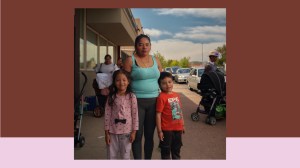In this series


Brenda Todd needs size 3T and 4T clothes for a little boy who is going to stay temporarily with a host family. He’s bringing nothing with him.
Todd knows who to call: A volunteer in Wheaton, Illinois, has transformed her basement into a storage room stuffed with baby gear and clear plastic totes of children’s clothes in every size. “[The intake form] says he’s potty trained, but I told her to grab pull-ups too, because you never know,” Todd said.
Todd is the director of a Safe Families for Children chapter that covers four counties in the western suburbs of Chicago. It’s one of more than 90 Safe Families chapters in 150 cities across eight countries working, as the website describes, “to enable the global church to return to its historic role of caring for the orphan and the widow.” Often, this care means helping struggling families avoid state involvement and separation.
For instance, if a mother loses housing, Safe Families might place her child with a temporary host family while coaches support her efforts to find a job and a home. Safe Families provides this help for free, and the mother keeps guardianship of her child. Host families understand that the goal is reunification, not adoption.
“If we say we’re pro-life, where do we go from here? It’s not just at the baby stage,” Todd said. “If this mom’s going to have the baby, we need to be there for her all the way through.”
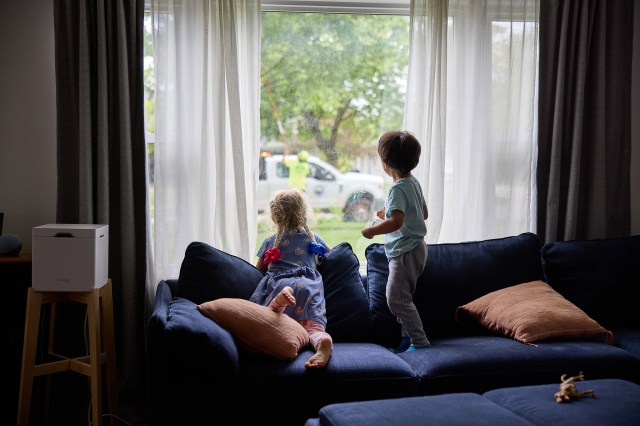 Photography by Tim Klein for Christianity Today
Photography by Tim Klein for Christianity TodayTodd currently oversees 25 cases with the help of one other paid staffer and volunteers from local churches. About one-third of the cases come after the Department of Child and Family Services investigates a family and fails to find evidence of neglect or abuse but knows the family is struggling. Another third of the cases come from other sources, like domestic violence shelters or schools. The rest come from parents who call Safe Families asking for help.
Relationships are at the center of Safe Families. Hosts take on a potentially lifelong commitment to mentor a family through crises that may not resolve. Former host Melissa Duncan says it is painful to watch families struggle repeatedly with the same crises. It’s not “Step into this family’s hard spot and get them through this bump on the road,” she said. “It was all bumpy.”
When a crisis does resolve, it’s also painful when hosts lose touch with the children they’ve welcomed into their homes. When families are reunified, parents may not want to stay in contact, especially if they feel shame about needing a host family.
 Photography by Tim Klein for Christianity Today
Photography by Tim Klein for Christianity Today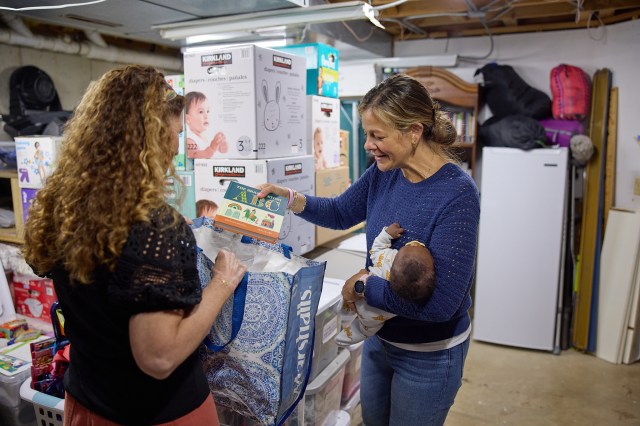 Photography by Tim Klein for Christianity Today
Photography by Tim Klein for Christianity Today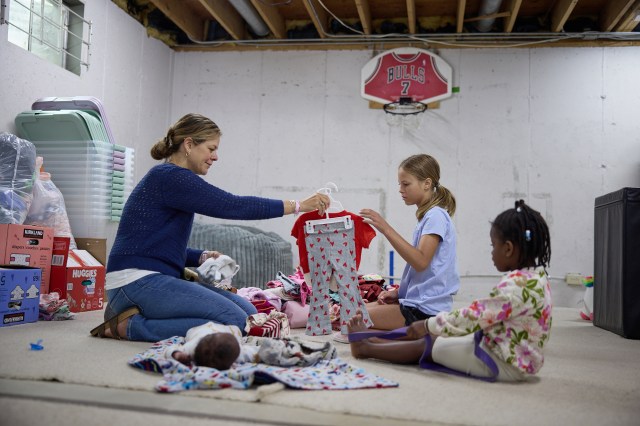 Photography by Tim Klein for Christianity Today
Photography by Tim Klein for Christianity Today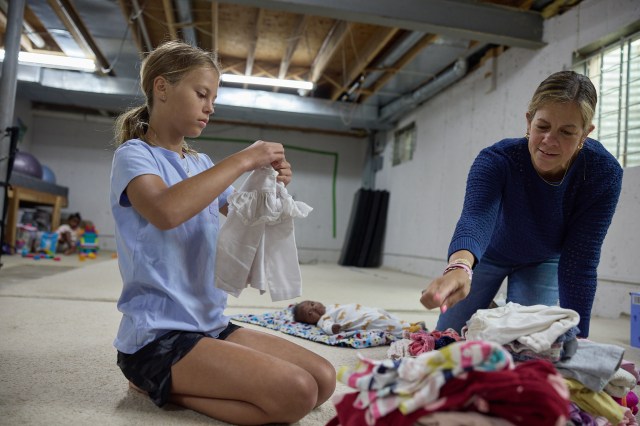 Photography by Tim Klein for Christianity Today
Photography by Tim Klein for Christianity Today Photography by Tim Klein for Christianity Today
Photography by Tim Klein for Christianity TodayGiven the challenges, government officials in 2003 told Safe Families founder David Anderson that his idea of using hosts from partner churches would never work. “You’re not paying them? You’ll never find families to do this,” they told him. “We can’t find enough foster families to care for children, and we pay them. Why would anyone want to do that for a stranger, for free?” Yet for two decades, church volunteers have come forward.
Some host. Others bring meals to hosting families, arrange social events, or collect children’s clothes and baby gear. Relying on volunteers means that the average Safe Families hosting situation costs $1,500 compared to $40,000 through US foster care.
The brokenness of the foster system is well documented. Public health journals and news outlets have featured articles on the “foster care to homelessness” pipeline. Many children bounce from one foster home to another for years. Only half of government-run cases end in family reunification, compared to 96 percent of Safe Families placements.
Safe Families carries forward the compassion Christians have offered throughout the centuries. As Todd tells pastors of potential partner churches, “You’re preaching [that] you want people to care for their neighbors, but how do they do that? We bring the neighbors that need help to you.”
Laura Finch is a multimedia journalist.








